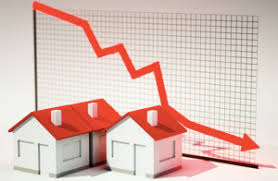Keep in Mind:
- A Buyer’s Market is when there’s more supply than demand (i.e. more houses for sale than people looking to buy). Homes for sale often stay on the market longer than average and sellers will likely accept lower prices than the original listing price. This is the ideal situation for buyers because they can get great real estate investment deals.
- A Seller’s Market is when there’s more demand than supply (i.e. more people looking to buy than people listing their houses for sale). Homes in this market are sold faster than average and possibly for a higher price. This is the ideal situation for sellers because several buyers will compete for the limited inventory of properties, hence they can get a great price.
Furthermore, results from the survey were regarding when the shift will start on the regional level. Some respondents predict that home buyers in the Midwest real estate market will be in the driver’s seat sooner than buyers in other regions. In fact, the most frequently selected year for major cities in the Midwest to turn into buyer’s markets was 2019. Other regions (Northeast, South, and West) are expected to change before the end of 2020 along with the nation overall. But what are the market trends that are causing experts to have this housing market forecast?
So, Will It Be a Seller’s Market or Buyer’s Market in 2020?
Property sellers have held all the cards at the negotiating table for years. US housing market predictions 2020, however, suggest that conditions are starting to show signs of easing up. The above-mentioned real estate trends (improving inventory, slowing home price and appreciation growth, and dropping mortgage rates) lead us to believe that buyers could have the upper hand soon. However, experts say that while these trends are noticeable, it’s far too soon to call the US a buyer’s market. Meaning, the US housing market might be described as a seller’s market in 2020 – but not a traditional one.
Still, real estate experts remain optimistic about housing forecasts. This is mainly due to a huge wave of millennials reaching peak home-buying age. Consequently, this should put pressure on demand not only in 2020 but in the years to come. So if a recession does hit at some point, the real estate market will not see the same impact because it’s much healthier now. For now, we can consider the current softening in the US real estate market as a short-term correction.
